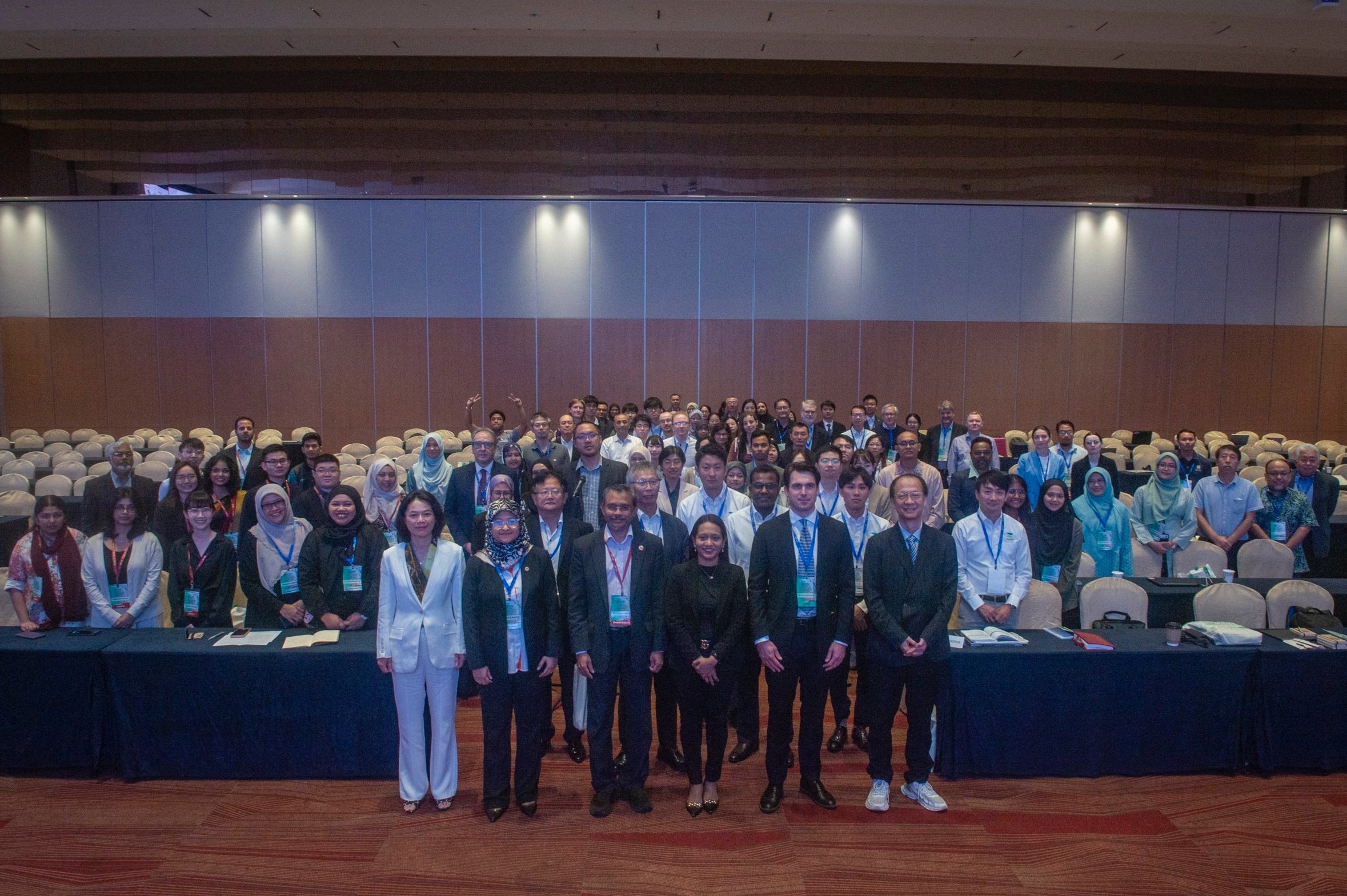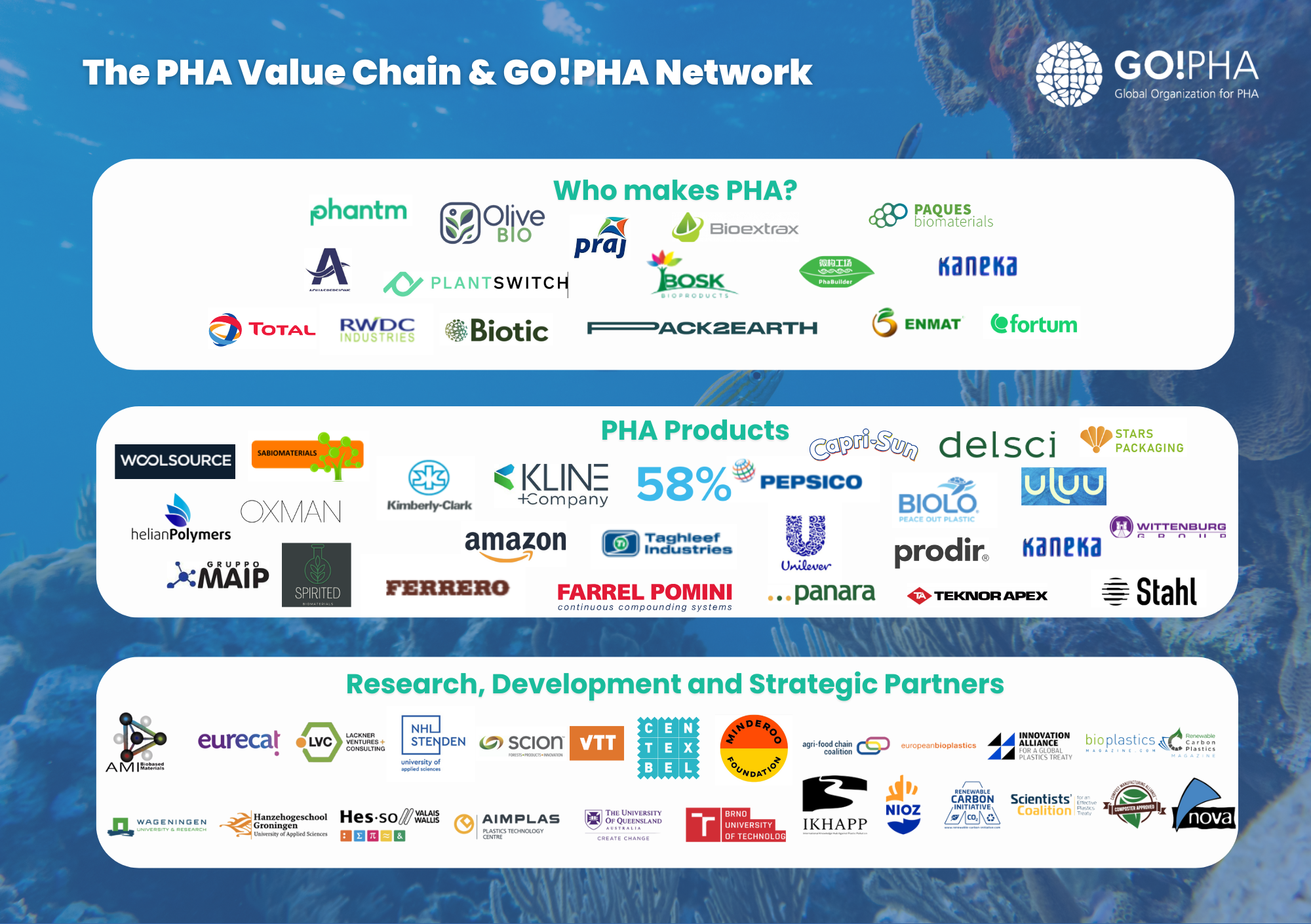Start a new PHAse
GO!PHA
The Global Organization for PHA
GO!PHA (Global Organization for PHA) is a coalition of over 70 stakeholders that includes members, including material producers, brand owners, academic institutions, waste management organizations, start-ups, environmental foundations, and dedicated individuals.
We provide a collaborative platform for sharing knowledge about circular bio-based materials, connecting policymakers, industry leaders, and academics to facilitate the exchange of ideas and drive progress.
GO!PHA actively advocates for the formulation of supportive policies and targeted investments to accelerate the development and commercialization of bio-based, biodegradable, and compostable materials (BBMs).
Our network collaborates across the entire life cycle of these materials—from development to waste management—to foster sustainable solutions that benefit both people and the planet.
What is PHA?
PHAs are a class of natural materials that exist in nature for over millions of years. These materials are both bio-based and biodegradable, similar to other natural materials such as cellulose, proteins and starch. PHAs are produced by an extensive variety of microorganisms through bacterial fermentation. During fermentation, bacteria convert different types of feedstock into a product. In this case, the microbes produce PHA, a natural polymer. This natural process can be mimicked in an industrial setting.
During the last 20-30 years, dozens of initiatives from all over the world have been started to make PHA materials useful for durable and structural applications as a sustainable alternative to chemically synthesised polymers.
PHA Impact Areas
Circular Economy
The circular economy increases prosperity, while reducing demands on finite raw materials. We need an economy that is restorative and regenerative by design. This requires innovative materials that can close the loop. PHA is such a promising material as it can do more with less.
Renewable & Bio-based
PHA is a true asset in the transition from a fossil-based economy towards a bio-based economy. The bio-based economy requires biomass and waste materials for non-food applications. The production of PHA uses (organic) waste streams and other renewable and recycled resources thereby mitigating climate change.
Avoiding Pollution
Materials made from PHA are biodegradable and therefore minimise pollution. Any waste materials made from PHA that accidentally do not end in waste collection schemes biodegrade safely and this also ensures that discarded PHA materials do not release toxic microplastics into the environment.
What We Do
-
Inform
Inform key public and private stakeholders about the benefits of PHA-polymers, by developing objective technical, environmental and pre-commercial communication. Advocating legislative and market adoption drivers, and identifying and overcoming barriers for further PHA-polymers adoption.

-
Educate
Improving market perception about the application development options and multiplying on success, by showcasing best practices. Creating an informative channel to present the realm of product and application development options and to develop objective inter-material replacement data.

-
Collaborate
Accelerating the adoption of technical and scientific advancements across industries by sharing processes, methods, and tools to enhance the competitiveness of PHA-based polymers. Facilitating pre-competitive research and providing a forum for partnerships to address shared challenges and drive innovation.

Join our member community!
GO!PHA membership is open to organizations committed to advancing renewable, durable, and biodegradable materials, addressing global warming, promoting a circular economy, and reducing plastic pollution.
By becoming a member, you’ll join a global network of stakeholders dedicated to sharing knowledge, driving innovation, and collaborating to accelerate the development and adoption of PHA and other sustainable materials.
Join us today and contribute to shaping the future of sustainable materials!















